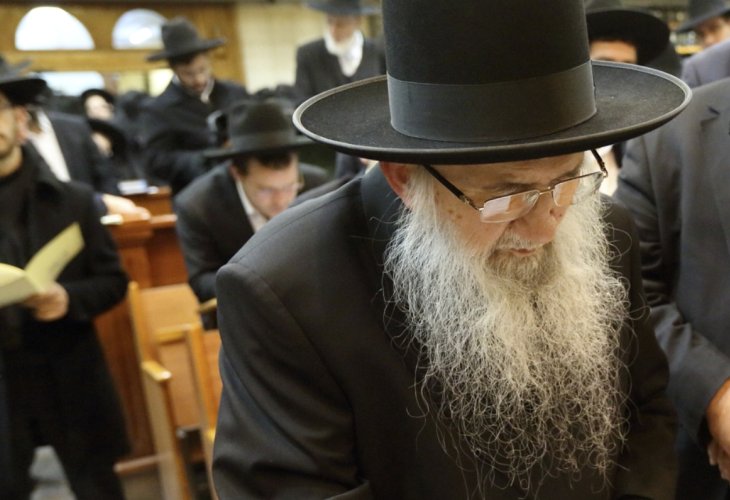Personal Stories
The Rebbe and the Crying Baby: A Story of Humble Greatness
An argument over who should wake up at night reveals how precious Torah is in Hashem’s eyes.
 Rabbi Dov Yaffe zt"l (Photo: Flash 90)
Rabbi Dov Yaffe zt"l (Photo: Flash 90)Today, the 19th of Cheshvan, marks the 5th yahrzeit (anniversary of passing) of the Mashgiach (spiritual guide) Rabbi Dov Yaffe. One of his students, Chaim Aryeh Weinberger, shared this touching and personal story:
About ten years ago, my teacher and rabbi, Rabbi Dov Yaffe, invited me to join him for the Purim meal. With joy in the air and wine lifting our spirits, the Mashgiach turned to me and asked, "Yes, Chaim'aryeh, is there something you'd like to ask?"
I was always a little daring—still respectful, but close enough with my teacher to speak openly. So I said, 'Yes, I have a story I’d like to tell the Rabbi and Rebbetzin. And I want to know—did it really happen?'
I began: 'Several decades ago, a few years after the Mashgiach and the Rebbetzin were married, they found themselves in disagreement and decided to bring the matter to a din Torah (rabbinical court). The judge was none other than the Rebbetzin’s uncle and stepfather, the Gaon Rabbi Aharon Cohen—who had also been the Mashgiach’s teacher at the Chevron Yeshiva.
They each presented their side: 'Every night, when the babies cry, we argue over who should get up to care for them,' they said.
The Mashgiach argued: 'I’m out of the house all day, and my wife is with the children. When I come home, I should help and let her rest. That’s true partnership.'
But the Rebbetzin insisted: 'You are learning Torah and guiding students all day. Your strength must be preserved for your holy work. I won’t allow you to get up at night!'
And so, night after night, the same thing would happen—neither one wanted the other to get up, and both would end up getting out of bed!
Rabbi Aharon Cohen listened carefully, paused, and gave his psak (ruling): 'You will take turns. One night the Rebbetzin gets up, the next night the Mashgiach gets up. A fair compromise.'
Everything went smoothly after that. On the Rebbetzin’s night, the babies cried and she got up, while the Mashgiach slept peacefully. On the Mashgiach’s night, he awoke suddenly in the morning and panicked: he had overslept!
He asked the Rebbetzin why she hadn’t woken him when the babies cried.
She answered calmly, 'I didn’t get up either… because they didn’t cry.'
And that was the beginning of a pattern that continued for years. On the Rebbetzin’s nights, the babies cried. On the Mashgiach’s nights, they simply didn’t! The babies slept soundly, never needing to be tended to!
This was the story I told them at the Purim table.
When I finished, I turned to my teacher and asked, 'Is it true?'
The Mashgiach responded modestly, 'It’s not that they didn’t cry… they just didn’t wake up.'
In his deep humility, he was trying to downplay the whole thing.
But the Rebbetzin stood up and said with great emotion, 'It happened! That’s exactly how it happened! For years, on his nights there was silence in the house! And on mine, the babies cried! Do you understand how much they value his Torah in shamayim (heaven)?!'

